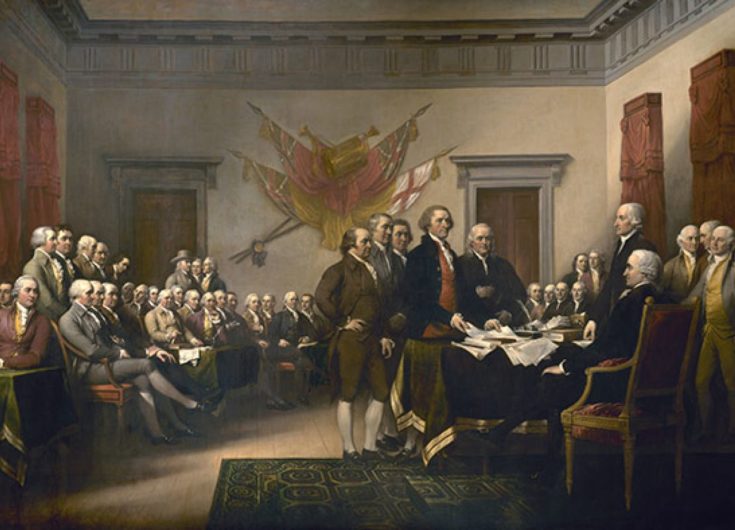

To Make a People: Strategic Rhetoric and the Declaration of Independence
To get to July 4, 1776, required no small amount of strategic thinking, of prudent statesmanship, of expert melding together of situational awareness, rhetorical prowess, alliance-leveraging, and political maneuverings. Jefferson was acutely aware that among the American colonial politicians of his day, there was an “inequality of pace with which [they] moved” towards the end goal of political independence from Great Britain, and that therefore a great “prudence [was] required to keep front and rear together,” for them ever to hope to be successful in the undertaking. How Jefferson and the more zealous members of his set built up to the Declaration of Independence is arguably a masterclass in statecraft, with publication of Jefferson’s Summary View as their opening move.

